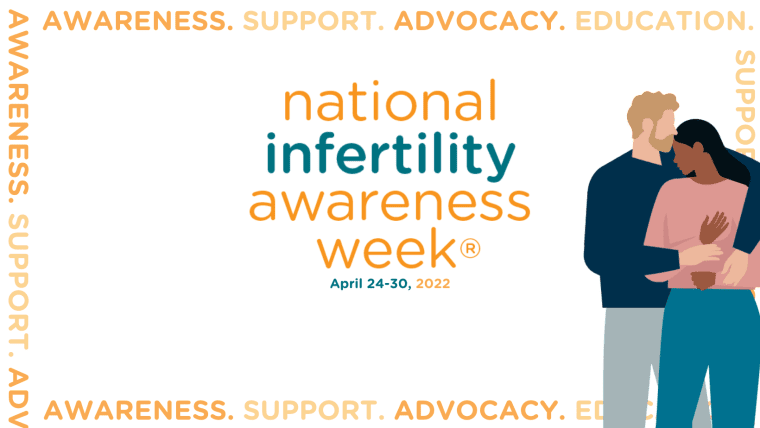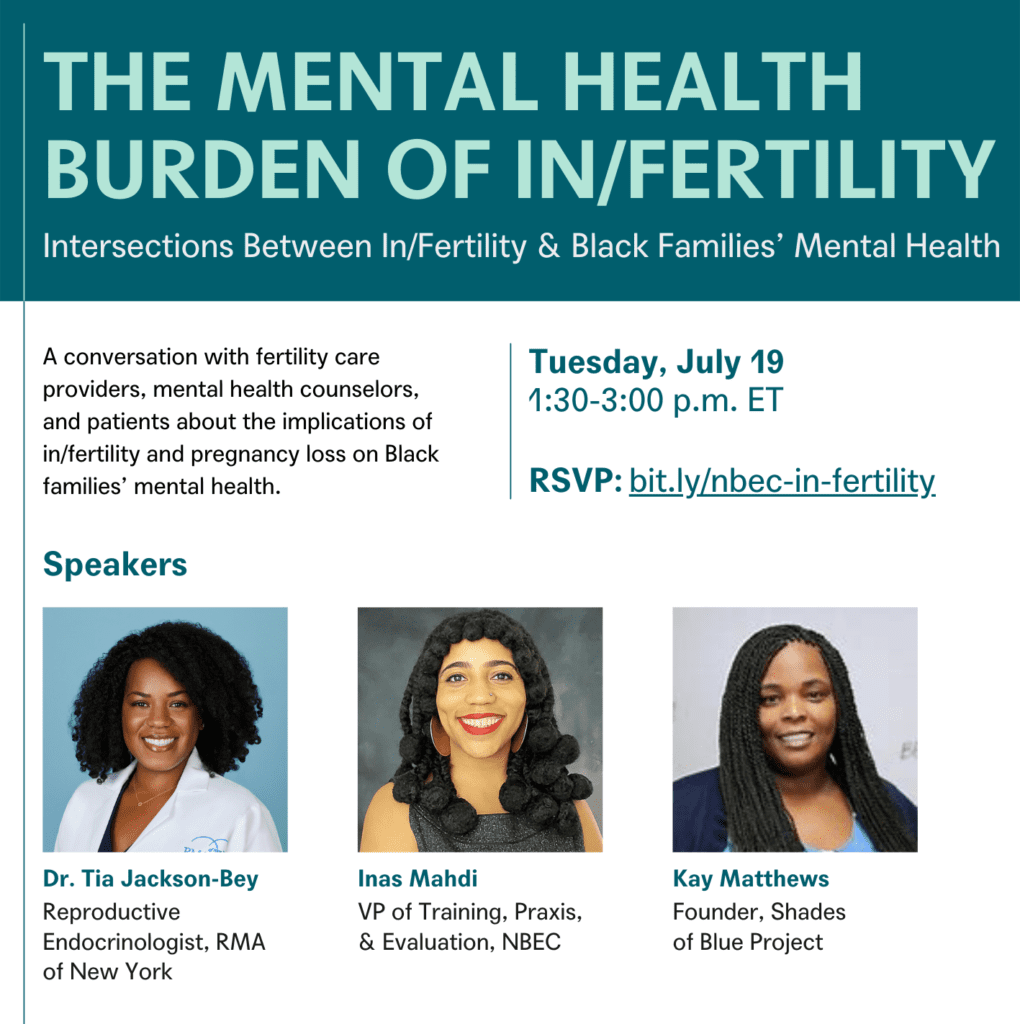National Infertility Awareness Week, April 24-30, Addresses Barriers to Accessing Infertility Care
The week aims to destigmatize infertility and draw attention to the many barriers people face when trying to access fertility care to build their families.

Infertility impacts millions of people in the United States and around the world. National Infertility Awareness Week, which runs from April 24 – 30, is a national week of action that aims to destigmatize infertility and draw attention to the many barriers people face when trying to access fertility care to build their families.
The World Health Organization and Centers for Disease Control and Prevention define infertility as the inability to become pregnant after 12 months of regular, unprotected sexual intercourse.
In the United States, an estimated 19% of married, heterosexual women struggle to become pregnant while an estimated 30% of infertility cases are diagnosed as male-factor.
Deeply entrenched racial and ethnic disparities in health that disproportionately impact Black women in the United States are also seen in their rates of infertility and access to care. Indeed, Black women are nearly twice as likely as their non-Hispanic white counterparts to experience infertility, but only half as likely to receive treatment.
Read more about the Center’s work on infertility.
Assisted Reproduction
The Center seeks to destigmatize infertility and ensure equitable access to fertility care, including IVF.
People Struggling with Infertility Face Numerous Barriers to Fertility Care
Stigma, limited information, lack of insurance coverage, restrictive laws and policies, and high out-of-pocket costs put fertility care, including in vitro fertilization (IVF), out of reach for many.
The out-of-pocket cost of a single cycle of IVF can cost upwards of $20,000. For uninsured people who need access to fertility care to build their family, the cost can be prohibitively expensive. With few exceptions, Medicaid doesn’t cover fertility care for its more than 75 million beneficiaries, leaving many unable to access care.
Only 17 states in the United States have mandates that require insurance carriers to provide fertility benefits. Mandates vary from state to state and not all of them are inclusive of the wide range of experiences of those who struggle with infertility. Unfortunately, infertility’s definition is often incorporated into these mandates and insurance carriers can and often do use it to require single people and LGBTQ couples to first prove that they are infertile before becoming eligible for coverage. This means that single and LGBTQ couples have to pay out-of-pocket to undergo other methods of fertility care like intrauterine insemination (IUI) before receiving a diagnosis of infertility and finally getting coverage.
While less expensive than IVF, a single cycle of IUI can cost between $150 and $4,000 out-of-pocket depending on whether it includes hormone treatment and medical monitoring. Notably, the rates of success for IUI are lower than for IVF.
U.S. military members face similarly restrictive eligibility requirements that keep many of them from accessing the fertility care they need to build their families. Under TRICARE, for example, to be eligible for insurance coverage a servicemember must 1) be on active duty, 2) have experienced a serious illness or injury while on active duty, 3) have lost their reproductive ability due to that illness or injury, 4) be able to provide their own genetic material, and 5) have a lawful spouse who can also provide their own genetic material. These eligibility requirements are mirrored in the Veterans Health Administration and keep many in the military from accessing needed fertility care.
“Laws and policies that enable people struggling with infertility to access the care they need to build their family are critical to supporting their rights to make decisions about their reproductive and family life,” says Karla Torres, the Center’s Senior Human Rights Counsel. “This is especially true for Black, Indigenous, and other people of color, people with low income, people with disabilities, and LGBTQ people who face multiple forms of discrimination in accessing fertility care.”
Infertility and access to fertility care implicate core human rights—including the rights to health, including sexual and reproductive health, reproductive and bodily autonomy, and to equality and non-discrimination. To respect, protect, and fulfill these rights, state and federal laws and policies must remove all barrriers to accessing fertility care, especially for people facing multiple forms of discrimination, and ensure that they have access to the full spectrum of sexual and reproductive health information and care, including fertility care.
National Infertility Awareness Week: What You Can Do
- Raise awareness about #NIAW2022 among friends and family by sharing messages and images from the event’s official social toolkit.
- Attend an event. See the #NIAW2022 calendar of events for more.
Read more:
- Center Factsheet: “Infertility and IVF Access in the United States: A Human Rights-Based Policy Approach”
- Center Report: “Ensuring Equitable Access to Infertility Care in the United States: Guiding Principles for Policies Mandating Insurance Coverage”
- Center Issue Brief: “Access to IVF for Servicemembers and Veterans”


